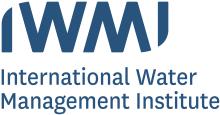Resource information
The Sri Lankan based International Water Management Institute (IWMI) has produced this report assessing the need and effectiveness of agricultural water storage (AWS) in Africa, in the context of climate change risks. Widely anticipated to make a key contribution to climate change adaptation through the mitigation of climate variability, AWS will have to significantly improve if it is to achieve intended benefits. The authors begin by describing different AWS options available, covering reservoirs, ponds and tanks, aquifers, soil moisture, and natural wetlands, and outlining the potential impacts of climate change for each. By modifying both the availability and demand of water, climate change makes all AWS options potentially vulnerable in terms of performance, cost, and adverse effects. Also described is the development of a diagnostic tool based on biophysical and demographic indicators, designed to provide fast, ‘first-cut’ evaluations on the need for and effectiveness of different AWS options. This diagnostic tool was applied to sub-Saharan Africa and, in more detail, to the Volta Basin and the Ethiopian portion of the Blue Nile Basin. The findings concluded that the greatest need for AWS was in the Sahelian zone, the Horn of Africa, and southern Africa, with localised hotspots in Angola, Rwanda, Burundi, Uganda, Malawi, and Mozambique. Population density was the primary indicator of need in Ethiopia and Ghana, rather than areas with the least rainfall as might have been anticipated. The study concludes that ,under a ‘middle impact’ climate change scenario, the effectiveness of AWS will decrease in both the Volta Basin and the Blue Nile Basin. The authors note that this approach requires refinement through further research and more testing in real planning situations. Nevertheless, it can provide a first-step toward a more rigorous approach to future AWS planning.



